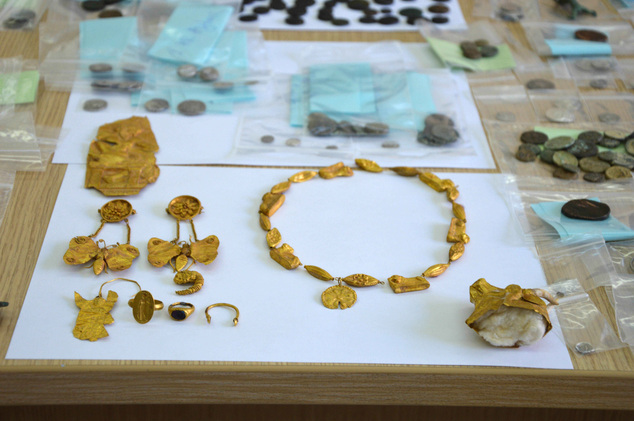
After a 14-month-long investigation, Greek police announced yesterday that they have caught a major smuggling ring. The gang was composed of more than 50 people who had been digging up and selling priceless Greek antiquities. According to the Associated Press, clients included “conniving European auction houses or private buyers.” So far, police have recovered over 2,000 relics that were stolen from various parts of Greece, and 26 suspects have been arrested.
Police spokesman Haralambos Sfetsos said that those who have been arrested range “from the alleged leaders to people believed to have been carrying out the illegal, nighttime excavations.” They face criminal charges that could land them in prison for up to 25 years.
While the majority of the stolen goods were coins that dated back to as early as the 6th century B.C., other items included “a large marble Cycladic figurine from the 3rd millennium B.C., gold butterfly-shaped jewelry, rings,” and “bronze statuettes of animals,” reports AP. Furthermore, police say they found two large stone statues hidden in a well in southern Greece.
Dozens of illegally-excavated ancient coins seized from a large smuggling gang. Image courtesy Greek Police via AP.
In the most surprising turn of events, European auction houses, which remain anonymous due to Greek law, apparently collaborated with the thieves—sometimes even going so far as to finance their operations. The relics were sold mostly online.
“For very many of the coins we have full documentation, starting from when they were discovered in the earth to the auction at which they were sold,” Sfetsos said. Such documentation will aid Greek officials in recovering the missing artifacts.
The gang had supposedly been active for more than 10 years, carefully plotting which areas to loot and even, says AP, “sometimes using satellite imagery to pinpoint potential locations.”